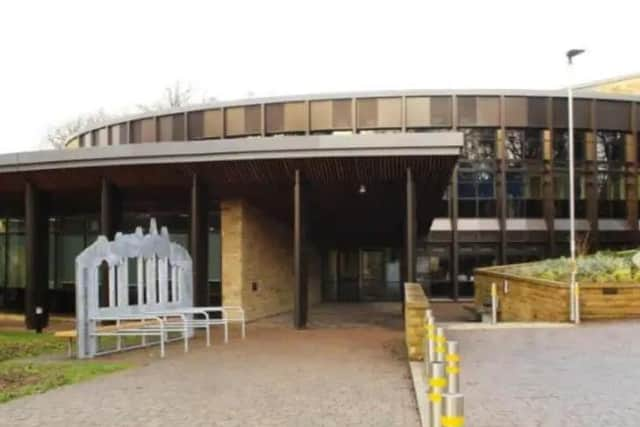Council tax in Harrogate could rise by almost 5% as leaders look to tackle Covid costs
and live on Freeview channel 276
North Yorkshire County Council is facing a £75m funding shortfall over the next three years and its leaders said while the authority could increase bills by up to 4.99% - the maximum amount allowed without having to hold a referendum - they are mindful that many residents are facing financial hardship.
Meanwhile, finance bosses at Harrogate Borough Council have proposed that their council tax collections - which make up just under 13% of bills - should be increased by the maximum £5 as they also said the authority has not been immune to the impact of the pandemic and government funding cuts.
Advertisement
Hide AdAdvertisement
Hide AdHarrogate cabinet members will meet today, Wednesday, to begin discussions on the proposals, while North Yorkshire County Council - which makes up 70% of bills - is continuing to calculate how much it should ask residents for.


A recommendation, expected to be made within three weeks, will be presented to the county council's elected members for a decision in February when Harrogate councillors will also meet to vote on their proposals.
North Yorkshire County Council's executive member for finance, councillor Gareth Dadd, said: "It is a very difficult balance, because whilst we know the county council needs that funding to run critical services for vulnerable people, we know that to take money out of the North Yorkshire economy at this critical time is not the best situation to be in.
"Never has that dilemma between funding critical services and raiding the coffers of the economy of North Yorkshire been more acute."
Advertisement
Hide AdAdvertisement
Hide AdThe authority's leader, councillor Carl Les, added: "There is no doubt people's incomes have been hit severely this year, but there's also no doubt our services are absolutely vital for some people this year.
"So we have got to get that balance right between providing services and not raising too much council tax."
For average band D properties last year, the county council levied £1,244 of basic council tax, as well as a social care charge of £120, while Harrogate council asked for just under £246 and police and fire services £388.
Paul Foster, head of finance at Harrogate Borough Council, said in a report the authority's £9m shortfall as a result of the pandemic represented an "unprecedented financial detriment" to the council and that income from lockdown-hit services including leisure centres and car parks would remain an uncertainty over the coming months.
Advertisement
Hide AdAdvertisement
Hide AdHe said: "The financial implications are challenging to estimate with certainty as there continue to be a number of unknowns, from how long, and to what extent, national and local restrictions will continue."
Over the last five years, councils have seen government funding cut by around 50%, with Harrogate's general grant allocation reduced by £8.2m.
Despite this, Mr Foster said the council remained in a strong financial position when compared to other harder-hit authorities.
He said: "Overall, Harrogate has so far coped well with the period of austerity that has run from 2010, in particular having avoided the widespread and serious service reductions experienced by other councils across the country.
Advertisement
Hide AdAdvertisement
Hide Ad"However, we must not lose sight of the medium term challenges that we will have to rise to. As a district council, we must be prepared for the continued challenges that Harrogate will no doubt face in the future and we are already taking steps to mitigate the extent of these via the wider 2024 transformation programme."
By Jacob Webster, Local Democracy Reporter
Comment Guidelines
National World encourages reader discussion on our stories. User feedback, insights and back-and-forth exchanges add a rich layer of context to reporting. Please review our Community Guidelines before commenting.